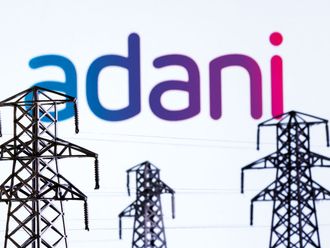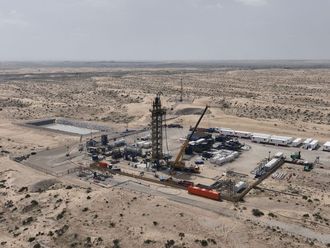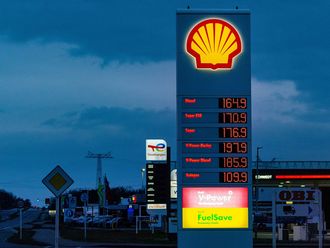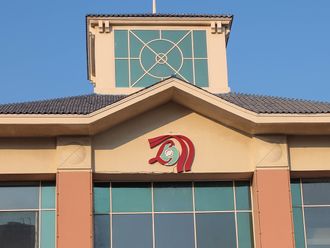Baghdad: Iraq and Syria plan to build as many as three new cross-border pipelines for oil and natural gas, providing the Iraqi government with new and potentially useful options for marketing its most valuable commodities.
Officials from the two countries' oil ministries "recently" signed a memorandum of understanding to build two oil pipelines and Iraq's first international gas pipeline, Senior Deputy Oil Minister for Upstream operations Abdul Karim Al Luaybi said in an interview in Baghdad yesterday. The pipelines would originate at oil fields near Kirkuk in northern Iraq and terminate at Syria's port of Banias on the Mediterranean Sea.
The agreement comes as Iraq, home to the world's third-biggest oil reserves, seeks to more than double its current crude production of 2.345 million barrels a day. Iraq depends on oil for most of its income and is counting on foreign companies such as Exxon Mobil to boost output at fields that have suffered from years of war, mismanagement and scant investment.
The oil ministry expects to boost daily production by about 13 per cent, or 300,000 barrels a day, in the next year alone, said Abdul Mahdy Al Ameedi, deputy director general at Iraq's Petroleum Contracts and Licensing Directorate, speaking in a phone interview on August 23.
New outlet
Iraq sells much of its oil to customers in Asia, shipping through the Arabian Gulf from a terminal south of Basrah. The planned pipelines through Syria would provide Iraq with an additional export outlet to markets in Europe and the United States and complement its only operational cross-border pipeline, an ageing artery from Kirkuk to Ceyhan, Turkey.
The Iraqi-Syrian pipelines would have a maximum capacity of 2.5 million barrels of oil a day, Al Luaybi said. If built as envisioned, they would theoretically be able to transport up to 52 per cent more crude than the existing Kirkuk-to-Ceyhan pipeline, which has a capacity of 1.65 million barrels a day and carries on average about 450,000 barrels a day.
The existing pipeline has been the frequent target of insurgent attacks. The flow of crude through the pipeline was halted from August 20 to August 26 after a bombing. Officials from Iraq and Turkey will sign an accord next week in Baghdad to extend by 15 years their agreement to operate the pipeline, Luaybi said on Wednesday.












